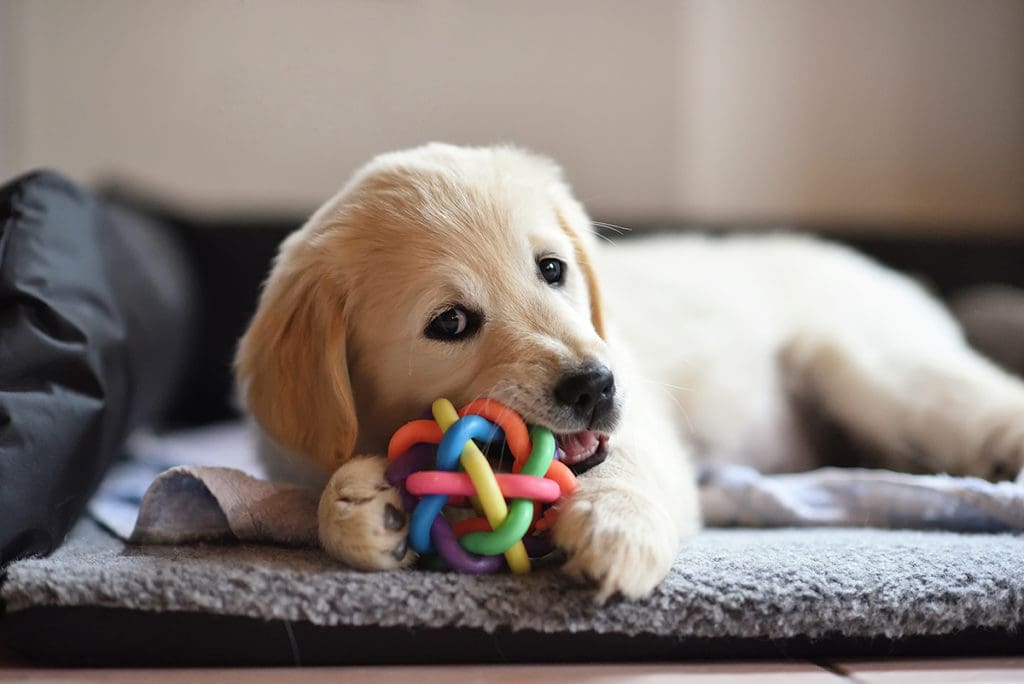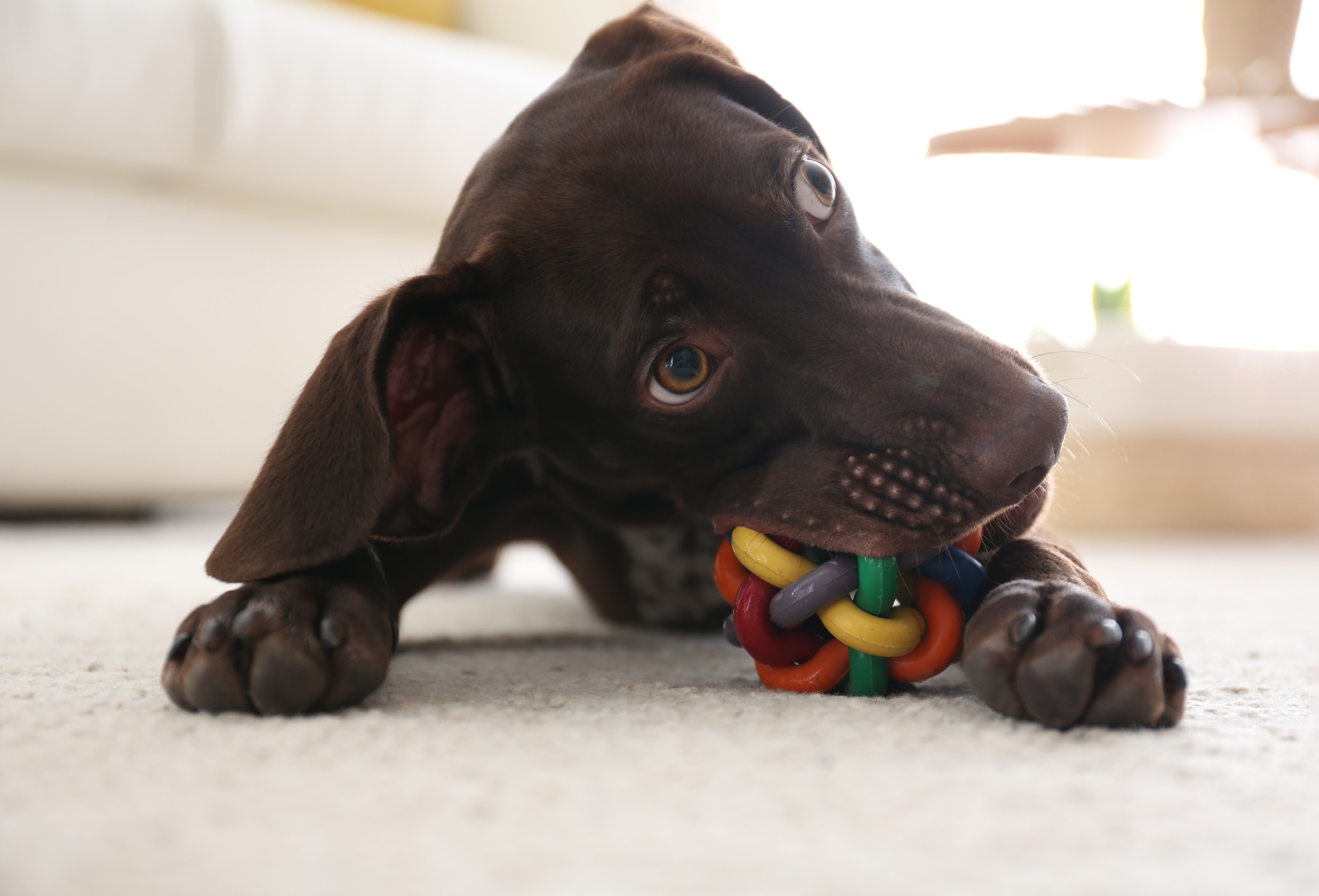Those tiny, needle-sharp teeth can be a surprise when your adorable puppy decides your hand—or ankle—is the perfect chew toy. Puppy biting and nipping is a common phase, but it can be frustrating and even painful. The good news is, your puppy isn’t being aggressive; they’re simply learning how to interact with the world.

Here’s why it happens—and how to gently guide your pup toward more polite behavior.
Why Puppies Bite and Nip
1. Exploring the World
Puppies don’t have hands. They use their mouths to explore objects, textures, and even your limbs. Biting is a natural part of how they discover their environment.
2. Teething Discomfort
Just like human babies, puppies go through a teething phase. This usually starts around 3 weeks and continues until about 6 months of age. During this time, chewing relieves the discomfort of incoming adult teeth.
3. Play Behavior
In the litter, puppies play-bite their siblings constantly. It’s how they learn bite inhibition—how hard is too hard. When you bring a puppy home, you become part of their “pack,” so the nipping continues with you.
4. Attention Seeking
Sometimes biting is just a way of saying, “Hey! Play with me!” If it gets a reaction—positive or negative—your puppy may keep doing it.

How to Stop It Gently
1. Teach Bite Inhibition
If your puppy bites too hard during play, let out a high-pitched “ouch” and immediately stop interacting. This mimics how their littermates would react. Then, walk away for a few seconds to show that playtime ends when biting begins.
Be consistent. If everyone in the household uses the same response, your puppy will learn faster.
2. Redirect the Behavior
Always have appropriate chew toys nearby. When your puppy starts biting, offer a toy instead. Praise them when they take the toy, reinforcing that this is okay to chew—you are not.
Soft plush toys, rubber bones, or teething rings are great for redirecting.
3. Use Timeouts Sparingly
If your puppy gets too wound up and won’t stop biting, a brief timeout (about 30–60 seconds) in a boring, safe area can help. This isn’t punishment—it’s a chance for them to calm down. Return calmly and resume play once they’ve settled.
4. Avoid Rough Play
Wrestling and roughhousing can encourage more biting, especially if your pup is still learning self-control. Keep play structured and positive. Use toys as a buffer to keep those little teeth off your skin.
5. Stay Calm and Patient
Never yell, hit, or physically punish a puppy for biting. Not only is it ineffective, but it can also damage your bond and cause fear-based behavior. Gentle, consistent correction works better and builds trust.
When to Get Extra Help
If your puppy’s biting seems unusually aggressive, is accompanied by growling or stiff body language, or continues well into adolescence without improvement, consider consulting a professional dog trainer or behaviorist. Early intervention is key.
Ready to unleash your dog’s potential? Visit Off Leash K9 Training of Hampton Roads to explore our expert training programs that promise exceptional obedience and a strong bond with your canine companion. Whether you’re in the Hampton Roads area or NE North Carolina, our proven system will help your dog excel off-leash. Contact us today at (757) 296-8366 to start your journey towards a more obedient and joyful relationship with your dog

